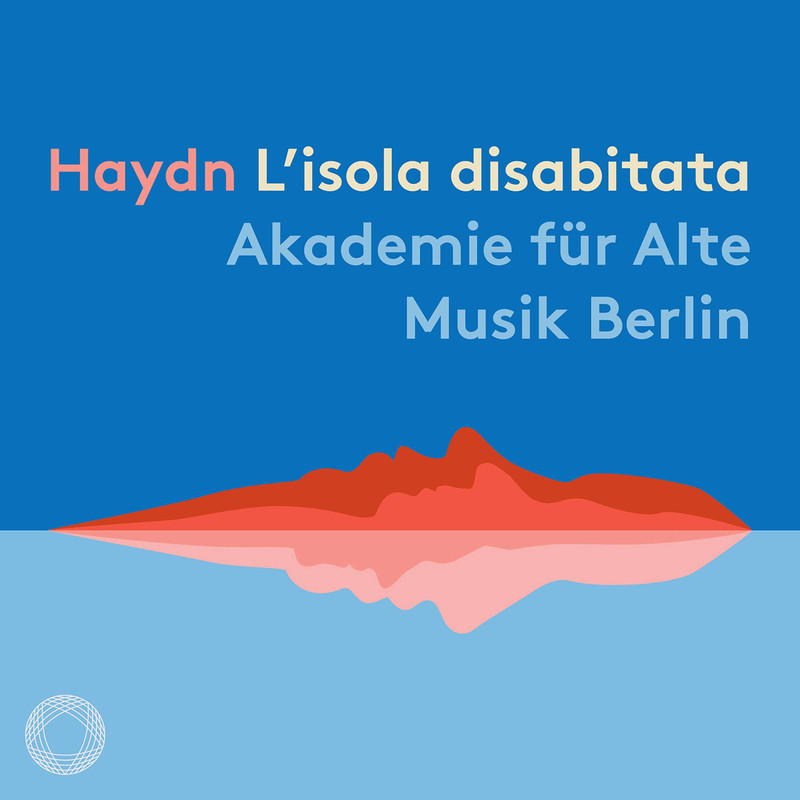
Bernhard Forck & Akademie für Alte Musik Berlin – Haydn: L’isola disabitata, Hob. XXVIII: 9 (2021)
FLAC (tracks) 24 bit/48 kHz | Time – 01:20:41 minutes | 827 MB | Genre: Classical
Studio Masters, Official Digital Download | Front Cover | © PentaTone
After their acclaimed recording of Telemann’s Miriways, the Akademie für Alte Musik Berlin returns to PENTATONE with Joseph Haydn’s opera L’isola disabitata, together with an excellent quartet of vocalists. Officially called an azione teatrale, L’isola is a serious opera about love, loss and misunderstanding with a happy ending, set on an exotic deserted island. Special about this opera is that Haydn chose orchestral accompaniment for the entire work, with colourful and dramatic accompagnato recitatives. In Haydn’s printed score, many of the elaborate instrumental sections were deliberately cut, because he feared that they demanded too much from the players, and that some audiences may not have been cultured enough to fully appreciate them. Special about this recording is that these parts have all been reinstated, using a recent edition by Thomas Busse. The seasoned players of the Akademie für Alte Musik Berlin, led by Bernhard Forck, play this lavish score with fervour and swing, while Anett Fritsch (Costanza), Sunhae Im (Silvia), Krystian Adam (Gernando) and André Morsch (Enrico) offer an equally virtuosic vocal delivery.
The Akademie für Alte Musik Berlin is generally seen as one of the best period-instruments ensembles of today, and has a substantial PENTATONE discography, including Telemann’s Miriways (2020), CANTATA with Bejun Mehta (2018), as well as Handel’s Messiah (2020) and Concerti grossi Op. 6 (released in 2019 and 2020) and Op. 3 (2020). Annet Fritsch and André Morsch featured on Telemann’s Miriways, while Sunhae Im and Krystian Adam make their PENTATONE debut.
There isn’t exactly a plethora of recordings of Haydn’s 1779 opera, L’isola disabitata, about a pair of sisters shipwrecked on a desert island who eventually are rescued respectively by their husband and lover. However that’s perhaps not surprising when you consider its bumpy entry into the world. Penned for the name day of Prince Nicolaus of Esterházy, this is a work that should have been assured of a lavish first staging, but a month before the premiere, the Esterháza opera house went up in flames, meaning the performance instead took place in the palace, quite possibly without scenery. What is more, Haydn himself wasn’t entirely convinced by what he’d written, remarking in later years that it needed to be shortened – in part because of the slow tempo of much of the music. Still, it’s worth remembering that operas which work brilliantly onstage don’t always translate so well into audio-only in one’s living room; whereas operas that feel a bit of a slog in the theatre can suddenly end up sounding a dream from one’s armchair, where plot and pacing is less important than the overall quality of the music and performances.
Happily, this particular recording of L’isola disabitata fits snugly into that latter category. Not least because it’s Haydn’s only opera for which he wrote an orchestral accompaniment for the recitatives; and while Haydn ended up deliberately cutting many of the elaborate instrumental sections from his printed score, fearing they were too demanding for both the players and the audience, Bernhard Forck and the Akademie für Alte Music Berlin have reinstated them all, using a recent edition by Thomas Busse. They’ve then presented them via readings that are unfailingly crisp, warm, committed and eminently convincing.
As for the vocal soloists, these are Anett Fritsch as Costanza, André Morsch as Enrico, Sunhae Im as Silvia and Krystian Adam as Gernando, and all four are so enjoyable that it feels wrong to single out anyone. That said, if you’re looking for highlights then perhaps skip to the “Fra un dolce deliro” from Sunhae Im, which absolutely delivers on what it says on the tin, Im’s bright, supple soprano voice sounding winsomely sweet and sprightly, complemented by some equally lovely woodwind colour. Or there’s the elegantly persuasive “Non turbar quand’io mi lagno” from tenor Krystian Adam.
Essentially, this is a performance that probably would have brought Haydn himself around to this opera’s pleasures. – Charlotte Gardner
Tracklist:
01. Overture
02. Recitative : Qual contrasto non vince
03. Recitative : Ah germana! Ah Costanza!
04. Aria : Se non piange un’infelice
05. Recitative : Che ostinato dolor!
06. Recitative : Ma sarà poi, Gernando
07. Aria : Chi nel cammin d’onoro
08. Recitative : Che fu mai quel ch’io vidi!
09. Aria : Fra un dolce deliro
10. Recitative : Ah presaga fu l’alma
11. Aria : Non turbar quand’io mi lagno
12. Recitative : Non s’irriti fra’ primi
13. Aria : Come il vapor s’ascende
14. Aria : Ah, che invan per me pietoso
15. Recitative : Giacché da me lontana
16. Arietta & Recitative : Giacché il pietoso amico
17. Recitative : Ignora il caro amico le sue felicità
18. Recitative : Costanza, Costanza?
19. Quartet : Sono contenta appieno
Download:
mqs.link_BernhardF0rckHaydnLis0ladisabitataH0b.XXVIII920212448.rar




















![Christina Landshamer, Akademie für Alte Musik Berlin, Bernhard Forck - La passione (2022) [FLAC 24bit/96kHz] Christina Landshamer, Akademie für Alte Musik Berlin, Bernhard Forck - La passione (2022) [FLAC 24bit/96kHz]](https://imghd.xyz/images/2022/09/22/zex4dmk32dcqa_600.jpg)
![Christina Landshamer, Akademie für Alte Musik Berlin, Bernhard Forck - Telemann: Ino & Late Works (2024) [FLAC 24bit/48kHz] Christina Landshamer, Akademie für Alte Musik Berlin, Bernhard Forck - Telemann: Ino & Late Works (2024) [FLAC 24bit/48kHz]](https://imghd.xyz/images/2024/03/08/z6ajuqfig5a5a_600.jpg)
![Akademie für Alte Musik Berlin, Xenia Löffler, Bernhard Forck - Mozart: Paris & Haffner Symphonies & Oboe Concerto (2023) [FLAC 24bit/48kHz] Akademie für Alte Musik Berlin, Xenia Löffler, Bernhard Forck - Mozart: Paris & Haffner Symphonies & Oboe Concerto (2023) [FLAC 24bit/48kHz]](https://imghd.xyz/images/2023/10/05/00a3173e.jpg)
![Akademie für Alte Musik Berlin, Ernst Schlader, Bernhard Forck - Mozart Symphonies Nos. 29 & 33, Clarinet Concerto (2024) [FLAC 24bit/96kHz] Akademie für Alte Musik Berlin, Ernst Schlader, Bernhard Forck - Mozart Symphonies Nos. 29 & 33, Clarinet Concerto (2024) [FLAC 24bit/96kHz]](https://imghd.xyz/images/2024/09/12/a667j5knq3wja_600.jpg)
![Akademie für Alte Musik Berlin, Bernhard Forck - Beethoven: Symphonies Nos. 4 & 8 - Méhul: Symphony No. 1 - Cherubini: Lodoïska Overture (2022) [FLAC 24bit/96kHz] Akademie für Alte Musik Berlin, Bernhard Forck - Beethoven: Symphonies Nos. 4 & 8 - Méhul: Symphony No. 1 - Cherubini: Lodoïska Overture (2022) [FLAC 24bit/96kHz]](https://imghd.xyz/images/2022/10/19/d190ntwj5m52a_600.jpg)
![Bernhard Forck - Beethoven: Symphonies Nos. 1 & 2 - C.P.E. Bach: Symphonies, Wq 175 & 183-17 (2020) [FLAC 24bit/96kHz] Bernhard Forck - Beethoven: Symphonies Nos. 1 & 2 - C.P.E. Bach: Symphonies, Wq 175 & 183-17 (2020) [FLAC 24bit/96kHz]](https://getimg.link/images/imgimgimg/uploads/2020/09/03iosnq.jpg)
![Akademie fur Alte Musik Berlin & Bernhard Forck - Handel: Concerti grossi, Op. 6 Nos. 1-6 (2019) [FLAC 24bit/96kHz] Akademie fur Alte Musik Berlin & Bernhard Forck - Handel: Concerti grossi, Op. 6 Nos. 1-6 (2019) [FLAC 24bit/96kHz]](https://getimg.link/images/imgimgimg/uploads/2020/02/r4dXd0f.jpg)
![Akademie fur Alte Musik Berlin & Bernhard Forck - Handel: 12 Concerti grossi, Op. 6 Nos. 7-12 (2020) [FLAC 24bit/96kHz] Akademie fur Alte Musik Berlin & Bernhard Forck - Handel: 12 Concerti grossi, Op. 6 Nos. 7-12 (2020) [FLAC 24bit/96kHz]](https://getimg.link/images/imgimgimg/uploads/2020/06/l3Pj06j.jpg)
![Akademie fur Alte Musik Berlin & Bernhard Forck - Beethoven: Symphony No. 6 ‘Pastoral’ (2020) [FLAC 24bit/96kHz] Akademie fur Alte Musik Berlin & Bernhard Forck - Beethoven: Symphony No. 6 ‘Pastoral’ (2020) [FLAC 24bit/96kHz]](https://getimg.link/images/imgimgimg/uploads/2020/06/DeVoWAC.jpg)